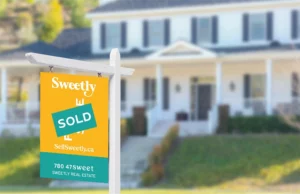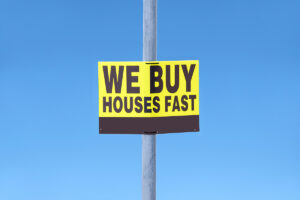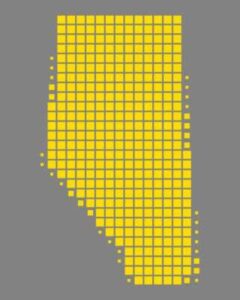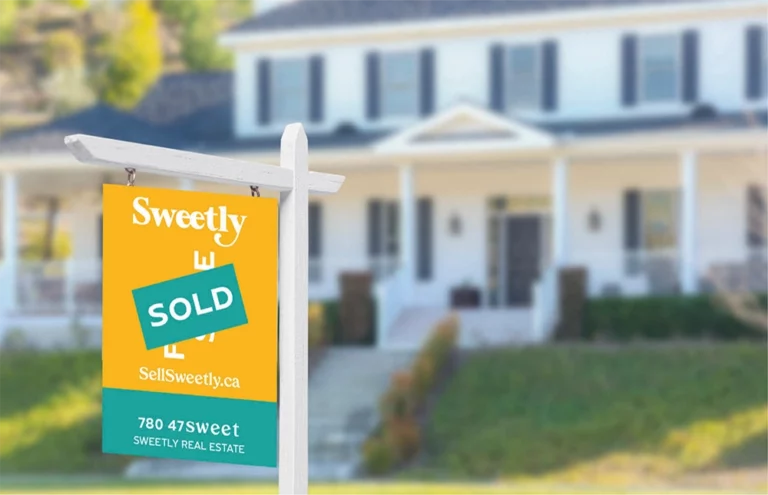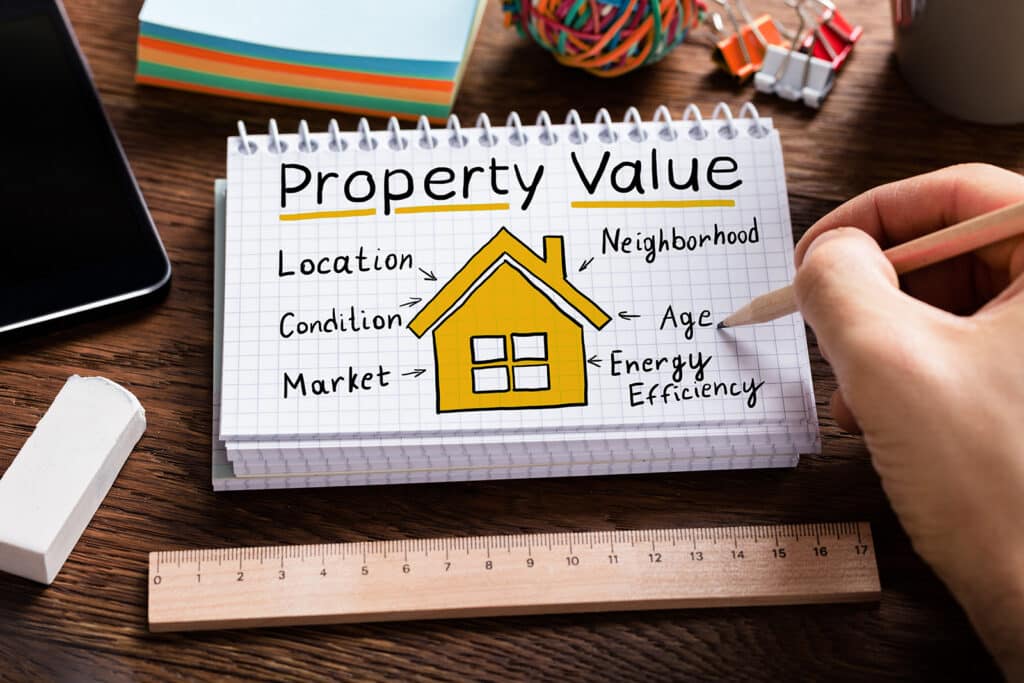Under provincial laws, there are no land transfer taxes, instead, you must pay a land transfer fee when closing on a home in Edmonton. Other expenses include the appraisal fee, a down payment, mortgage fees, and expenses included in the contract.
If it is your first time buying a home in Alberta, you may apply for a “first-time homebuyer’s credit.”
Below is everything you need to know about house closing fees and expenses in Edmonton.
Quick take: How to save money on home closing in Edmonton
- Land transfer fees in Alberta depend on the value of the home and the property’s geographical location.
- Alberta has one of the lowest closing costs in Canada because you do not have to pay property transfer taxes.
- Closing costs should add up to 2 to 5% (situational) of the purchase price. We recommend listing the expenses and estimating the cost with the help of a REALTOR®.
- Compare lender requirements before you negotiate a deal on a home. Check the fees, mortgage rates, and other expenses before you get a pre-approval letter.
- Reach out to your lender if you notice fees or charges that need clarification.
- You may qualify for closing cost assistance if you are disabled, a veteran, or a first-time home buyer.
- Services that you may negotiate a lower price for or “shop around for” include legal services, home inspection, title search, and agent fees.
- Look for government incentives and rebates to reduce the cost of purchasing a home in Alberta using the links below.
Note: You can avoid hidden fees by using Sweetly’s Swift Sale.
What is included in the closing cost for home buyers in Edmonton?
Are you buying a newly constructed/never occupied home or an old one?
For the former, you should know that the law requires you to pay a mandatory $2000 “new home warranty” if you are building a home. If you are purchasing a new home, you must pay GST (Goods and Services Tax), usually 5%.
If a newly constructed home in the province costs you less than $450,000, you may qualify for incentives and rebates.
What factors impact closing costs in Edmonton
How you intend to purchase the home determines how much you will pay in closing costs. If you pay in cash, the cost may be slightly discounted. But the cash option is out of reach for the majority of buyers.
How do home incentives and rebates work in Alberta?
According to the Canadian government, first-time home buyers in Alberta can claim up to $5000 income tax credit for the purchase if the buyer, buyer’s spouse, or common law partner qualifies.
Apply for HBP (Home Buyers Plan) here.
If you qualify, you also get a $750 federal tax relief.
To take full advantage of government incentives and tax rebates, we recommend consulting with an experienced local REALTOR®.
Other incentives you should consider taking advantage of when purchasing a home in Alberta include:
- First-time home buyer incentive. The federal and provincial governments in Canada offer first-time home buyers in Alberta 5 to 10% of the home’s purchase price toward a down payment. The incentive aims to lower your down payment and mortgage carrying cost. Find out if you qualify here.
- Canada green homes. If your home is eligible, you may access up to $5000 to help improve your new home’s energy efficiency. Find out if you qualify here.
- Goods and services tax (GST). You qualify for a “GST new housing rebate” if you purchase a new or substantially renovated home. Partnerships and corporations do not qualify for GST rebates. Find out if you qualify here.
That said.
The factors that influence closing costs in Alberta include:
- The size of the home.
- Lender requirements.
- Underwriting and processing fees.
- Legal services.
- Real estate broker fees.
- Application fees.
- Home inspection fees.
- Credit check fees.
What to remember
- The home’s geographical location may influence closing costs.
- Some fees can be negotiated, and some are non-negotiable (see below)
How are closing costs calculated in Edmonton?
When purchasing a home in Alberta, you will encounter the following expenses.
Mandatory expenses
- Legal fees/disbursements. The buyer and seller will need lawyers to oversee the transfer and handle administrative duties. Before hiring a lawyer, ensure you understand the services the professional provides and how much each service costs. That way, you can avoid hidden fees or unnecessary legal expenses. Other costs include a land transfer fee and miscellaneous costs such as photocopies and mailing charges.
- Adjustment costs. After the buyer takes possession, you may or may not have to reimburse the money the seller spent on property taxes or utilities. If the contract specifies it, then you must pay it. We recommend reading the terms and conditions of the purchase contract before signing, making sure that you understand the costs involved, and you have the resources to pay before signing,
- Real estate property report. Provincial laws require the seller to provide a real property report to the buyer detailing the property’s boundaries, buildings, and structures.
- Goods and services tax. If you are buying a new home or a substantially renovated home in Alberta, you have to pay GST, usually 5%. But as mentioned, you may qualify for a rebate.
Do you have to pay a property transfer tax in Alberta?
No. Homebuyers in Alberta do not pay tax transfer or property transfer tax. Instead, you will have to pay:
- Land transfer fee.
Other expenses
- Mortgage prepayment penalty. Your lender may require you to pay a penalty if you break an existing mortgage. We recommend consulting with your lender before selling a home or property that has a mortgage.
- Estoppel fee. Applies to persons investing in a condo in Alberta.
- Property appraisal or inspection. If the contract or your lender requires either, then you must pay. The seller may decide to sell the home as-is to avoid repair or renovation costs.
- Title insurance. Not mandatory, but beneficial in that it provides coverage for the lender against defects in the title such as existing liens or overlooked back taxes.
- Mortgage default insurance. You may have to pay mortgage default insurance if your down payment is less than 20%.
- Property taxes and related expenses.
- Pest inspection.
What to remember:
- Homes sold for more than $450000 do not qualify for GST rebates in Alberta.
- The home seller pays the REALTOR®’s commission -usually around 5%.
Can I negotiate closing costs in Edmonton?
Before you start looking for a home to buy in Alberta, you should:
(1) Get pre-approved for a mortgage.
(2) Understand the mortgage type and terms.
(3) Have the down payment ready.
(4) Estimate closing cost (A REALTOR® can help you with this).
(5) Be comfortable with the estimated mortgage payments.
That way, you may avoid delays in closing, and you are in a better position to negotiate an offer. A pre-approval letter gives you the advantage that you can confidently bid on a home within the set price range. To get one, contact your lender. You may need proof of income/assets, bank account, identification, and debt information.
A pre-approval letter will give you some strength in negotiations, but if you would like to become a power buyer you can sell your home to Sweetly before purchasing your next one. You choose the closing date that works best for your deal allowing you to shop with confidence.
What part of closing costs can you negotiate in Alberta?
In Alberta, you may negotiate the following fees.
- REALTOR® commissions. A REALTOR®’s services may extend to home appraisal and inspections.
- Rate lock fees.
- Application fees.
- Underwriting/origination fees.
- Lender credits/discount points.
- Title insurance
- Homeowner insurance.
An experienced REALTOR® can help you negotiate or avoid some of the expenses above.
Depending on the lender, non-negotiable home closing costs include:
- Land transfer fee. See Alberta’s land and title surveys common documents fee schedule here.
- Courier fees/loans transfer documents. Non-negotiable but relatively inexpensive in Alberta.
- Federal and provincial government fees. You may also have to pay for zoning compliance ($100 to $200 for a zoning compliance certificate).
Remember Edmonton’s zoning by-law 12800 section 4 reads:
“The Development Officer may issue a Compliance Certificate when, in their opinion, the buildings located on a Site as shown on the Real Property Report are located on the Site in accordance with the Setback regulations of this Bylaw or the Setbacks specified in any Development Permit which may have been issued for the Site. The Compliance Certificate shall only cover those buildings and structures, or parts thereof, shown on the Real Property Report submitted by the applicant.”
To avoid problems during or post-closing, we recommend that all property investors check local ordinances before signing the contract.
It is possible to buy a home with zoning issues in Alberta, but it may cost you a lot of money before or after closing. Remember, failure to comply with zoning ordinances may lead to a fine, lawsuit, or worse.
How to lower closing costs when buying a home in Edmonton
The first is to verify what you can and cannot negotiate. That entails contacting your lender, going over the purchase agreement, and estimating all related costs.
To lower home closing costs in Alberta, you should:
- Compare cost. You will need:
(1) REALTOR®.
(2) Attorney.
(3) Lender (If you are getting a mortgage).
Compare the cost of said services and settle on an amount that works for you. You may negotiate, just make sure that all agreements are in writing. - Check lender fees. Before you apply for a loan, read the fine print, and compare it with other lenders. You want to make sure that monthly payments and hidden fees do not cause undue hardship. Some lenders allow mortgage applicants to negotiate fees. You may also negotiate origination fees with your lender.
- You may negotiate a “No closing cost mortgage” with your lender.
- Negotiate closing costs with the seller. The seller may agree to pay for costs including transfer or commission fees.




